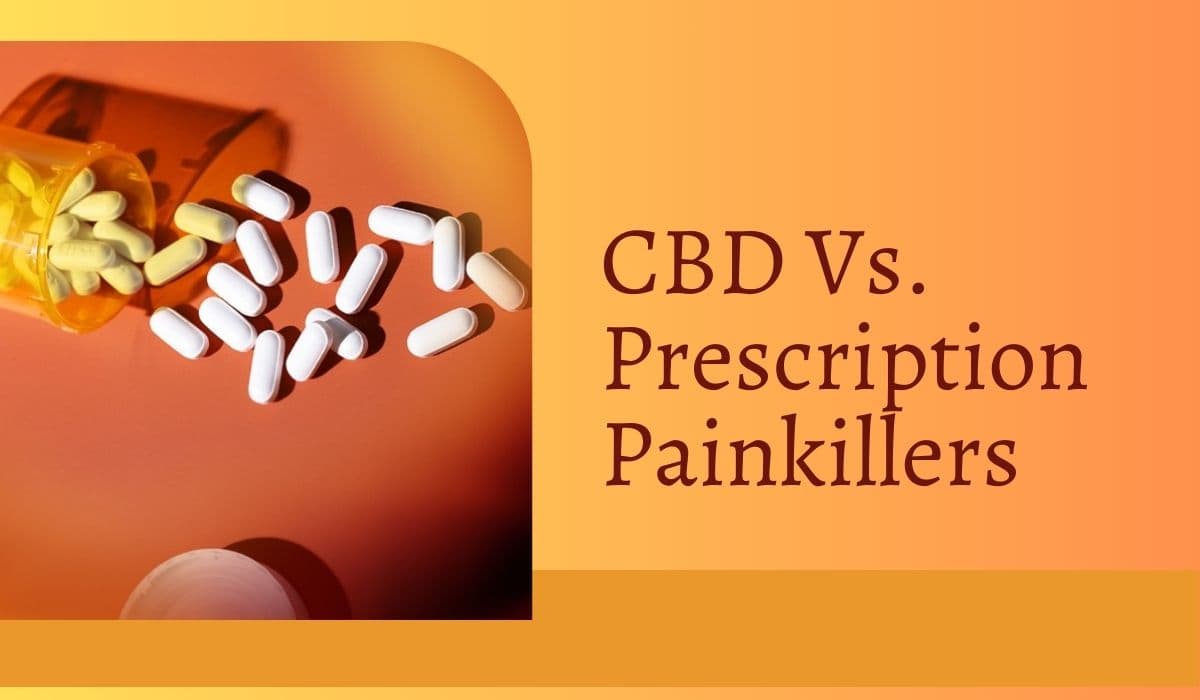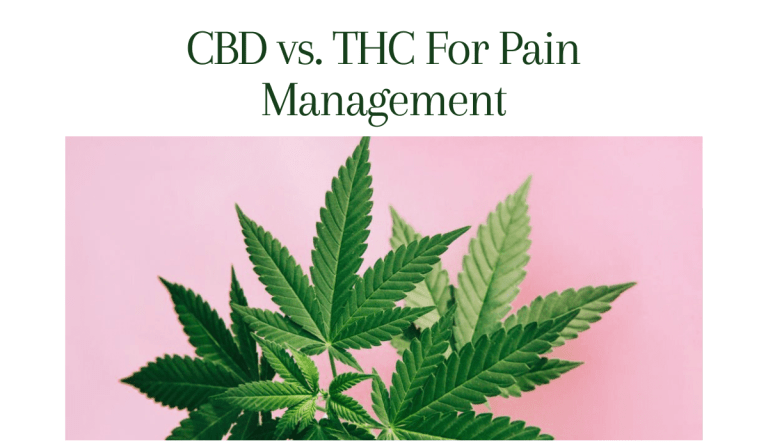CBD Vs. Prescription Painkillers – Which Is The Right Choice?

Painkillers are medicines that reduce aches, muscle sores, and pains. There are different types of painkillers are available in the market. Prescription painkillers eliminate the discomfort brought by illness, surgical procedures, and chronic conditions. The usage of pain relievers brings advantages and risks too. When it comes to the risk part, overdosage on prescription drugs is one of the risks that cause accidental death. Therefore, alternative treatments are highly appreciable to overcome this issue.
Studies say that cannabis can be used to treat pain, reduce the chance of dependence, and eliminate the risks related to overdose. The article discusses the differences between painkillers and CBD, the benefits of CBD in pain management, the effectiveness of CBD, and how it is more beneficial than prescription painkillers.
Introduction To CBD And Prescription Painkillers
Cannabidiol (CBD) is a chemical that is extracted from the cannabis sativa plant. It is considered one of the essential components of medical marijuana that are manufactured in laboratories. CBD and tetrahydrocannabinol (THC) are the most well-known researched cannabinoids. Both are used in the medical industry, however, CBD has become more popular and effectively used for medical purposes. Unlike THC, CBD is a non-euphoric component available in the form of oils, gummies, drinks, etc. When it comes to medical purposes, some of the research has shown promising results.
The main role of CBD in pain management makes this drug’s position unique. The notable side effects of prescription opioids in the body increased the demand for CBD in the market. Prescription opioids cause several side effects, such as nausea, drowsiness, slowed breathing, and euphoria. When compared to other prescription painkillers like opioids, CBD doesn’t cause any ‘high’ effects. Therefore, it can be used as an effective and safer alternative to opioids to eliminate pain.
Differences between Prescription Painkillers and CBD
Prescription painkillers, especially opium, a plant that contains opioids that reduce pain by binding to opioid receptors. There are numerous types of opioids available in the market, such as codeine, morphine, fentanyl, oxycodone, etc. These painkillers can interact with opioid receptors on nerve cells in the brain, and thereby the body produces pain-relieving and euphoric effects.
According to the Centers for Disease Control and Prevention, addiction to prescription painkillers and their overdosage cause several harmful effects on the body. There is a high risk of opioid dependence. Once you are addicted, it can be difficult to stop. But the legality and wide acceptance make opioids easier to use, and healthcare professionals normally recommend them for pain-relieving effects.

Cannabis is a chemical compound that binds to cannabinoid receptors in the brain and body to manage the communication of cells. It is part of marijuana but does not get you high. The anti-inflammatory and anti-oxidative properties of CBD help in pain management. The anti-oxidative properties also reduce inflammation by fighting oxidative stress and decrease symptoms of autoimmune conditions.
When it comes to pain management, there is some evidence supporting that consuming CBD helps to reduce neuropathic pain, migraine, certain symptoms associated with cancer, etc. CBD interacts with the endocannabinoid system (ECS) to give pain-relieving effects. Compared to other drugs, CBD has mild effects and doesn’t have euphoric effects.
Benefits and drawbacks of using CBD for pain management
Many people use different CBD products to relieve pain. There is evidence supporting that cannabis or CBD could reduce chronic pain. Some of the studies have shown the promising effects of CBD in pain management. Following are some of the pain that could be controlled by the use of CBD.

- Chronic pain
As aforementioned, CBD has a vital role in chronic pain management. Researchers say that there is substantial evidence to support the efficacy of cannabis in chronic pain. The antioxidant and anti-inflammatory properties in CBD give pain-relieving effects through its various interactions and modulation of the endocannabinoid system. CBD supplements could offer better results in people with chronic conditions.
- Arthritis pain
A study in the ‘European Journal of Pain’ explain that CBD could manage the pain of arthritis. An animal model study proved the effectiveness of CBD in arthritis pain. The anti-inflammatory properties help to control the pain, improve sleep and reduce anxiety.
- Neuropathic pain
A 2020 study in rats found that CBD contains neuroprotective properties that are beneficial for relieving neuropathic pain. It helps to reduce inflammation in the brain and pain as well. Multiple sclerosis is one of the main causes of neuropathic pain. Research shows that a median dose of the CBD product called, Sativex can reduce MS and protect the nervous system.
Drawbacks
◾️ Patients who are considering CBD products for relieving their pain should talk to their healthcare provider because they can review what is the best product that is suitable for them. ◾️ All CBD products are not as good as it seems.
◾️ Overdosage can cause mild side effects, such as drowsiness, fatigue, vomiting, diarrhea, reduced appetite, and dry mouth.
◾️ High-quality CBD products can be expensive.
◾️ When it comes to the legalization of CBD, the FDA (U.S. Food and Drug Administration) doesn’t approve any CBD products, except the drug Epidiolex.
Conclusion
CBD and opioids are two types of painkillers that are popular in the medical industry. Compared to painkillers, CBD is effective in pain management and does not cause ‘high’ effects as other drugs. Consuming cannabis can reduce opioid addiction, its side effects, and cravings.
But there is limited data available on the efficacy of cannabinoids. So many people are not much confident about whether CBD is efficient in pain management or not. You can consider CBD products for relieving pain instead of taking opioids. However, you should talk with your doctor before choosing any CBD.
Dr. Edward Zelman
Dr. Edward Zelman works as a Neurologist with the expertise of over 15 years, helping more than thousands to get back in complete health through his research-proven treatments. He earned his Masters from Harvard University and completed his Ph.D. from Columbia University. Dr. Edward Zelman is one of the notable names in the medical industry for his work in pain management, chronic disorder, and so on. He is also a former faculty at the Massachusetts Institute of Technology (MIT). At present, Dr. Edward Zelman is researching safe and effective natural remedies that can restore as well as maintain the youthful functioning of the body.
View All By Dr. Edward





